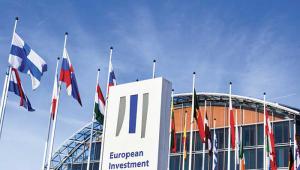pollution-shutterstock_179942231.jpg

Pollution. Image © Shutterstock
EIB president Werner Hoyer told a press conference the bank’s environmental investment reached €16.8bn in 2020 – 40% of its total investment, up from 34% the year before – showing that it had become “the EU’s climate bank”.
“We demonstrated in 2020 that there is no trade-off between investing in the economic recovery and investing in climate action and innovation,” he said.
“All our objectives are interlinked. Europe can only emerge stronger from [the crisis caused by Covid-19] by investing in the green and digital economy of the future and not in structures of the past.”
In November, the EIB board approved a ‘climate bank roadmap’, which set out the route the bank will take to achieve its targets of investing 50% of its total funds in green schemes and mobilising €1trn of investment to climate and the environment by the end of the decade.
The plan includes the phasing out of financing for high-emission projects, such as airport expansions, and sets out “stringent criteria” for the financing of others, such as motorways.
“Instead of financing assets we will have to write off tomorrow, we must invest in energy efficiency, renewable energy, sustainable mobility and green innovation,” Hoyer said.
However, campaign group Bankwatch said the roadmap was too small a step, albeit in the right direction.
“[The climate bank roadmap] finally excludes financing for projects, especially in the energy sector, that would aggravate the climate crisis,” said the organisation’s policy officer Anna Roggenbuck.
“But funds for some carbon-intensive infrastructure projects would still be available.
“In the transport sector, for instance, the EIB could still support motorways and expressways at a time when private vehicles with internal combustion engines urgently need to be restricted, not encouraged.”
She said Bankwatch research showed that the EIB provided €4.7bn of public money – the bank is owned by the EU’s 27 member states and is primarily funded through bond issuance – to companies with a high share of coal in their power generation portfolios, or to companies that still plan to develop new coal power plants.
Roggenbuck said the roadmap should include guidance on selecting clients who “would genuinely facilitate the EIB’s climate goals”, and that not doing so would still leave the EIB “bankrolling the climate crisis, even if indirectly”.
“Requiring Paris-aligned decarbonisation plans from corporate borrowers and financial intermediaries is the least the EIB can do to ensure it is part of the solution, not part of the problem,” she said.
“In fact the commercial financial sector is already doing that, so it is disappointing the EU’s financial arm is still dawdling.”













